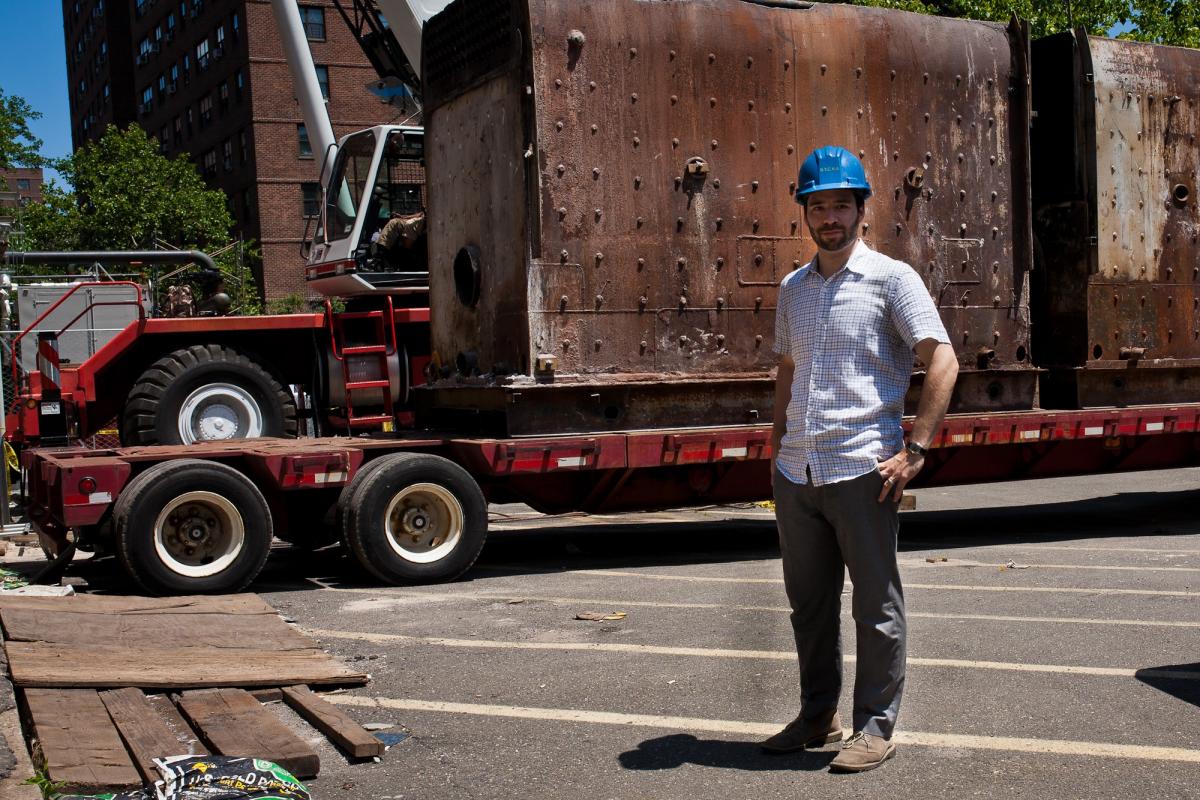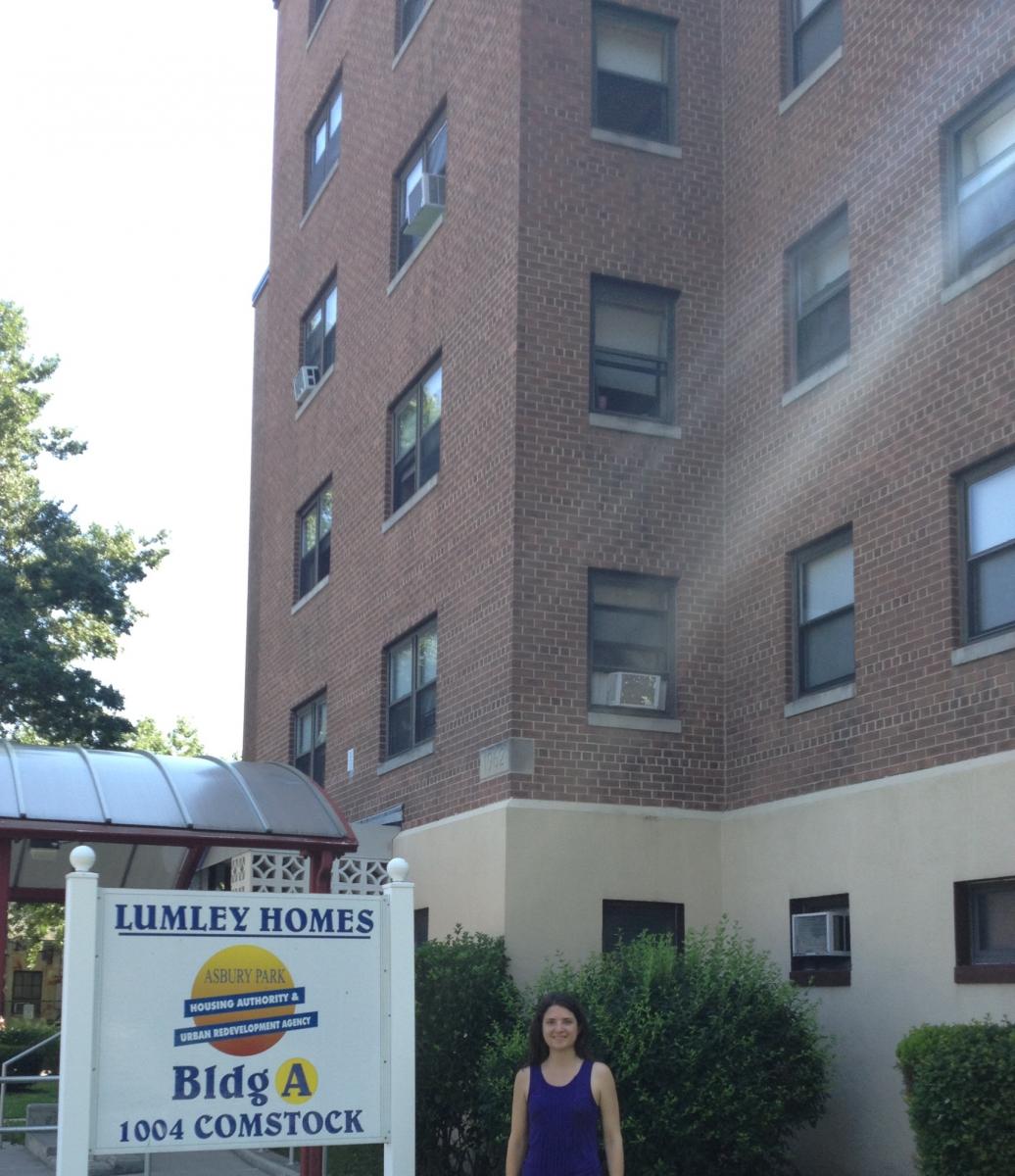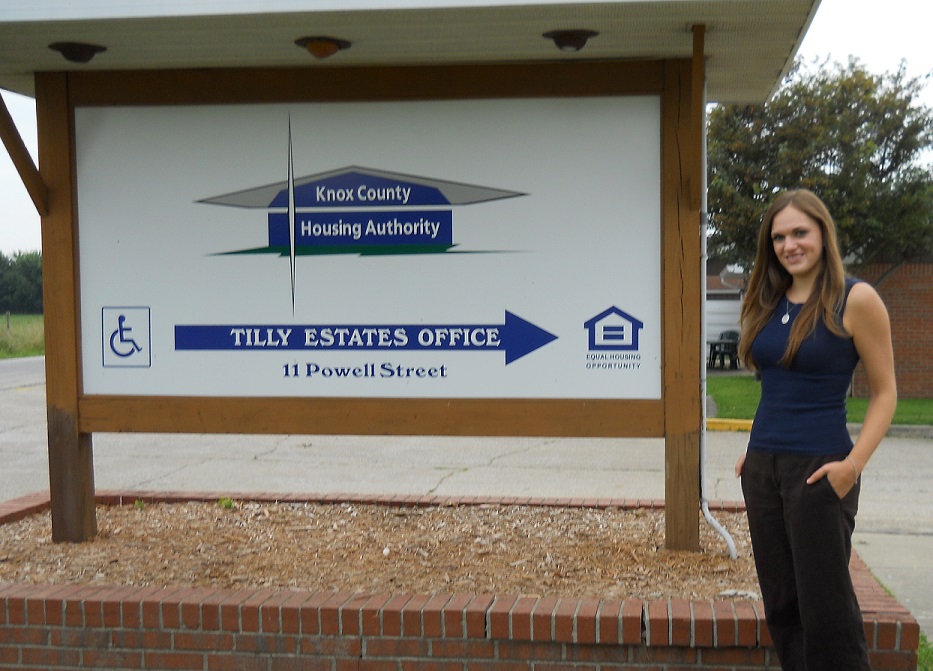EDF Climate Corps fellow | September 27, 2013
This summer, Anthony, Sarah and Kaity worked within Public Housing Authorities as EDF Climate Corps fellows. They worked on recovery efforts from Hurricane Sandy, resiliency, energy performance contracts and benchmarking using energy dashboards. As Sarah said, “It’s been really interesting to see first-hand the need and potential for energy efficiency projects within the facilities.” Read below for more from the interviews with these three fellows.

Name: Anthony Clark
Hometown: New Haven, CT
School: Yale University
Host Organization: New York City Housing Authority
Q: What is an interesting fact about you?
A: My professional experience ranges from working on a successful wiretap investigation and prosecution of a financial fraud ring to leading the policy and science publications shop of one of the largest environmental nonprofits in the country. This summer, in addition to EDF Climate Corps, I spent a week in London as one of 10 initial fellows in the Schmidt-MacArthur Fellowship on the Circular Economy focusing on innovative strategies to improve energy and resource efficiency.
Q: Why did you join EDF Climate Corps?
A: The combination of the pre-summer training, great selection of host organizations where I could learn and apply my skills and creation of a community and network with the other fellows and sustainability professionals were all huge draws. I had also talked to several classmates who were EDF Climate Corps alums and they highly recommended the program. By the way, the training out in San Francisco did live up to expectations—especially EDF’s choice to bring in experts with incredible knowledge in the area of energy and public housing where a handful of us were to be placed.
Q: What are you working on this summer?
A: The main project I’m working on for the New York City Housing Authority (NYCHA) is to research and analyze energy resilience strategies at housing developments with a focus on those developments most affected by Hurricane Sandy. I am looking at the energy consumption profiles of buildings, appropriately sized and available distributed generation technologies to provide heat and power on site and financing mechanisms to deploy that equipment. The post-storm rebuilding provides a huge opportunity to rebuild in a smarter, more resilient way.
Q: In tackling that project, what has been the most difficult part?
A: NYCHA provides housing directly to almost half a million residents in 334 developments across New York City (and another 225,000 residents through the Section 8 voucher program). Due to the scale of the organization, it takes time to get an understanding of the housing stock, energy systems and the many streams of data coming in from the sophisticated energy consumption and billing management systems NYCHA has in place. Also, when it comes to making recommendations about rebuilding and replacing equipment, the perspective, expertise and buy-in from staff across the organization is essential.
Q: What is one thing you’ve learned this summer?
A: I have learned a lot about the power of crisis to accelerate thinking and investment in important areas. Before Sandy, NYCHA and New York City were thinking about these issues, but since the storm, the level of resources and speed of the response have both increased. Of course when responding to a crisis there is also time pressure to make decisions quickly, which can present challenges to allocating time for developing the best long-term and most sustainable plans.

Name: Sarah Volkman
Hometown: Newtown, PA
School: Columbia University
Host Organization: City of Long Branch Housing Authority
Q: Why did you join EDF Climate Corps?
A: This fellowship is a great opportunity to gain professional experience in energy efficiency, which I see as the nuts and bolts of sustainability. I’m pursing a Master’s degree in Sustainability Management, so, overall, EDF Climate Corps is completely in line with my career aspirations. And as someone who is dedicating my career to improving the environment, one of the really compelling aspects of EDF Climate Corps for me is the collective impact that all the fellows working on projects this summer throughout the country are able to have in curbing climate change.
Q: What are you working on this summer?
A: I’m reviewing and evaluating an existing energy performance contract for seven housing complexes owned by the Asbury Park Housing Authority, which is recently under management by the City of Long Branch Housing Authority. I’m also recommending suggestions for a second phase of the project.
Q: What is one thing you’ve learned this summer?
A: I’ve learned a lot about the intricacies of public housing policy, and it’s been really interesting to see first-hand the need and potential for energy efficiency projects within the facilities.
Q: What is the best advice you’ve received?
A: An alumnus of EDF Climate Corps advised me to really dig in at my host organization and not to be afraid of thinking outside the box in terms of the scope of my project. He told me to use being an outsider to my advantage – and look for the organization’s needs from a perspective that they probably wouldn’t have internally.
Q: What has been the best part for you about working at the City of Long Branch Housing Authority?
A: The organization is in such a critical moment, transitioning to managing another housing authority, that there’s really a need for the work I’m doing. It’s rewarding to be able to make a difference that wouldn’t have happened otherwise.

Name: Kaity Goldsmith
Hometown: Cambridge, MA
School: Portland State University
Host Organization: Knox County Housing Authority
Q: What is an interesting fact about you?
A: I assistant-led an AmeriCorps trail crew to construct parts of the Continental Divide Trail in Colorado and Wyoming.
Q: What are you working on this summer?
A: The most significant project is setting up an automated energy tracking dashboard. Once that is in place the Housing Authority can progressively benchmark the retrofits and upgrades they are performing, and ultimately track progress towards their 25 percent energy reduction goals in their SPI/HUD Green Accreditation plan.
Q: What is one thing you’ve learned this summer?
A: I’m definitely learning about the intricacies of working within a government agency, what it requires and how it operates.
Q: What has been the best part for you about working at the Knox County Housing Authority?
A: Gaining an understanding of how these policies at the federal level play out on the ground. It’s been interesting to understand that dynamic.
Q: What is the mark you want to leave on the world?
A: I want to enact policy and management practice that produce pragmatic results on the environmental issues that are plaguing the world at this moment. I want to be a piece in that puzzle.
This post is a part of our "Interviews with Tomorrow's Leaders" series. Stay tuned for more interviews with our 2013 EDF Climate Corps fellows!
About EDF Climate Corps
EDF Climate Corps (edfclimatecorps.org) taps the talents of tomorrow’s leaders to save energy, money and the environment by placing specially-trained EDF fellows in companies, cities and universities as dedicated energy problem solvers. Working with hundreds of leading organizations, EDF Climate Corps has found an average of $1 million in energy savings for each participant. For more information, visit edfclimatecorps.org. Read our blog at edfclimatecorps.org/blog. Follow us on Twitter at twitter.com/edfbiz and on Facebook at facebook.com/EDFClimateCorps.